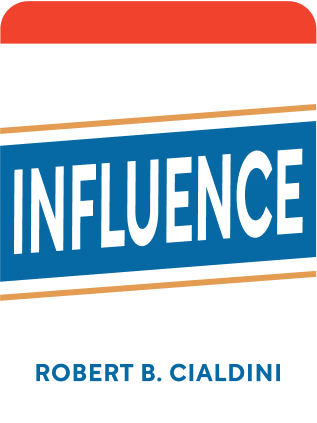

This article is an excerpt from the Shortform summary of "Influence" by Robert B. Cialdini. Shortform has the world's best summaries of books you should be reading.
Like this article? Sign up for a free trial here .
Are you tempted by products that are only available for a short time? What about the lure of something exclusive that only a few people have? Is it the product itself or the concept of scarcity of that product drawing you?
The concept of scarcity in social psychology is that we are attracted to things that do not appear to be widely available. These things may be having a shortage or may just be accessible by fewer people. According to Robert Cialdini, scarcity influences our decisions. Don’t allow the concept of scarcity to obscure your actual feelings, opening yourself up to manipulation.
What Is the Concept of Scarcity?
Cialdini’s Scarcity Principle tells us that we find more appealing those things with limited availability. On a basic level, we encounter this all the time: rare goods are expensive, while abundant items are cheap.
The concept of scarcity, or the appearance of it, is a powerful motivating factor in influencing our behavior. We want things we can’t have—or at least think we won’t be able to have if we don’t act quickly and decisively.
As you know by now, compliance practitioners know how to frame their proposals to make them seem like rare, fleeting opportunities that we’ll miss if we don’t capitalize on them immediately. “Limited-time only” or “first come, first serve” sales offers are the most common use of the concept of scarcity. Compliance practitioners can greatly enhance the appeal of their product if they can convince you that what they’re selling is in short supply, will be taken off the market imminently, or is only available to an exclusive set of customers.
Resisting Cialdini’s Scarcity Principle
How do you avoid getting caught up in the concept of scarcity and its mania? How do you resist the temptation of “buy now, limited-time only?”
Knowledge, as with the other principles, is power. When you sense that your desire for some scarce item or experience is clouding your judgment, precisely because it is scarce, you should hit the pause button.
You’re never going to make a wise decision in this state of irrational exuberance. Compliance practitioners know this all too well, that’s why they try to work you up with scarcity tactics.
Once you realize that this is where your mind is going, you can begin to us your rational faculties to better assess the potential decision. Ask yourself, “Do I truly want to experience this scarce thing or merely possess it?”
In other words, do you really value it for its intrinsic social, economic, material, or psychological benefits, or is your desire driven solely by the concept of scarcity itself? If your answer is the latter, then you are probably being lulled into a scarcity compliance trap.
Rare or scarce things aren’t inherently better than common things. Compliance practitioners know this better than anyone. Used-car salespeople, for example, know that they can greatly increase the desirability of a given car, simply by making potential customers wait in line while other potential customers inspect it and take it for test drives.
But the fact that they have to wait doesn’t make the car any better: the tires, transmission, shocks, and alignment are still the same. These customers become consumed by their desire to have the car, not by the actual utility of the car.
You should remember this as you confront the compliance practitioners of the world. Is the rarity of the thing itself what’s drawing you to it? If so, are there any inherently desirable qualities that would make the item rare? If there aren’t, then you might be buying something for entirely the wrong reasons. Don’t get manipulated by Cialdini’s Scarcity Principle.

———End of Preview———
Like what you just read? Read the rest of the world's best summary of Robert B. Cialdini's "Influence" at Shortform .
Here's what you'll find in our full Influence summary :
- How professional manipulators use your psychology against you
- The six key biases you need to be aware of
- How learning your own biases will help you beat the con men around you






